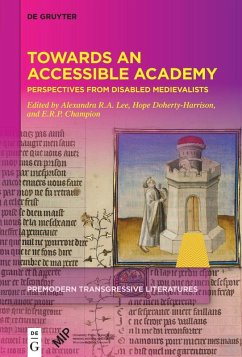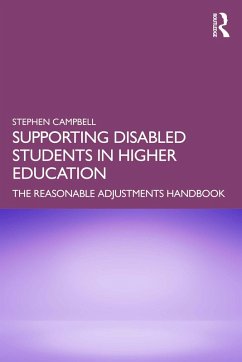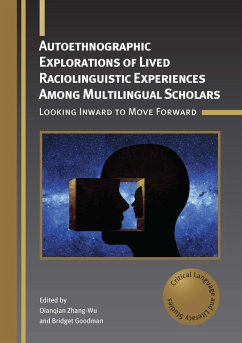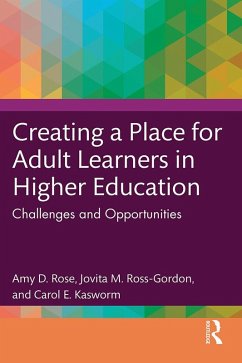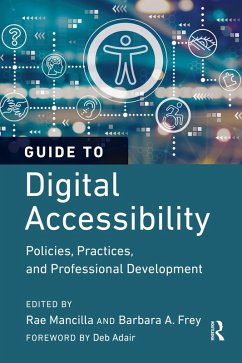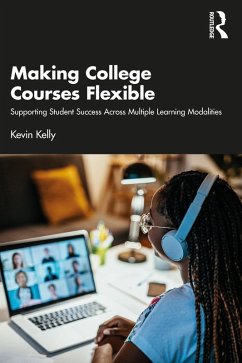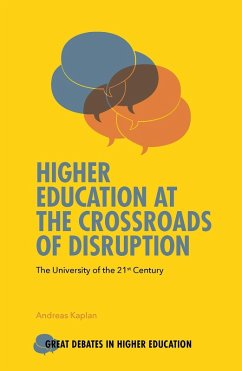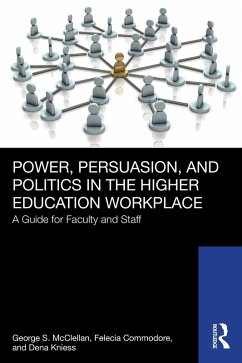
Lived Experiences of Ableism in Academia (eBook, ePUB)
Strategies for Inclusion in Higher Education
Redaktion: Brown, Nicole

PAYBACK Punkte
13 °P sammeln!
Demands for excellence and efficiency have created an ableist culture in academia. What impact do these expectations have on disabled, chronically ill and neurodivergent colleagues? This important and eye-opening collection explores ableism in academia from the viewpoint of academics' personal and professional experiences and scholarship. Through the theoretical lenses of autobiography, autoethnography, embodiment, body work and emotional labour, contributors from the UK, Canada and the US present insightful, critical, analytical and rigorous explorations of being 'othered' in academia. Deeply...
Demands for excellence and efficiency have created an ableist culture in academia. What impact do these expectations have on disabled, chronically ill and neurodivergent colleagues?
This important and eye-opening collection explores ableism in academia from the viewpoint of academics' personal and professional experiences and scholarship. Through the theoretical lenses of autobiography, autoethnography, embodiment, body work and emotional labour, contributors from the UK, Canada and the US present insightful, critical, analytical and rigorous explorations of being 'othered' in academia.
Deeply embedded in personal experiences, this perceptive book provides examples for universities to develop inclusive practices, accessible working and learning conditions and a less ableist environment.
This important and eye-opening collection explores ableism in academia from the viewpoint of academics' personal and professional experiences and scholarship. Through the theoretical lenses of autobiography, autoethnography, embodiment, body work and emotional labour, contributors from the UK, Canada and the US present insightful, critical, analytical and rigorous explorations of being 'othered' in academia.
Deeply embedded in personal experiences, this perceptive book provides examples for universities to develop inclusive practices, accessible working and learning conditions and a less ableist environment.
Dieser Download kann aus rechtlichen Gründen nur mit Rechnungsadresse in A, D ausgeliefert werden.




